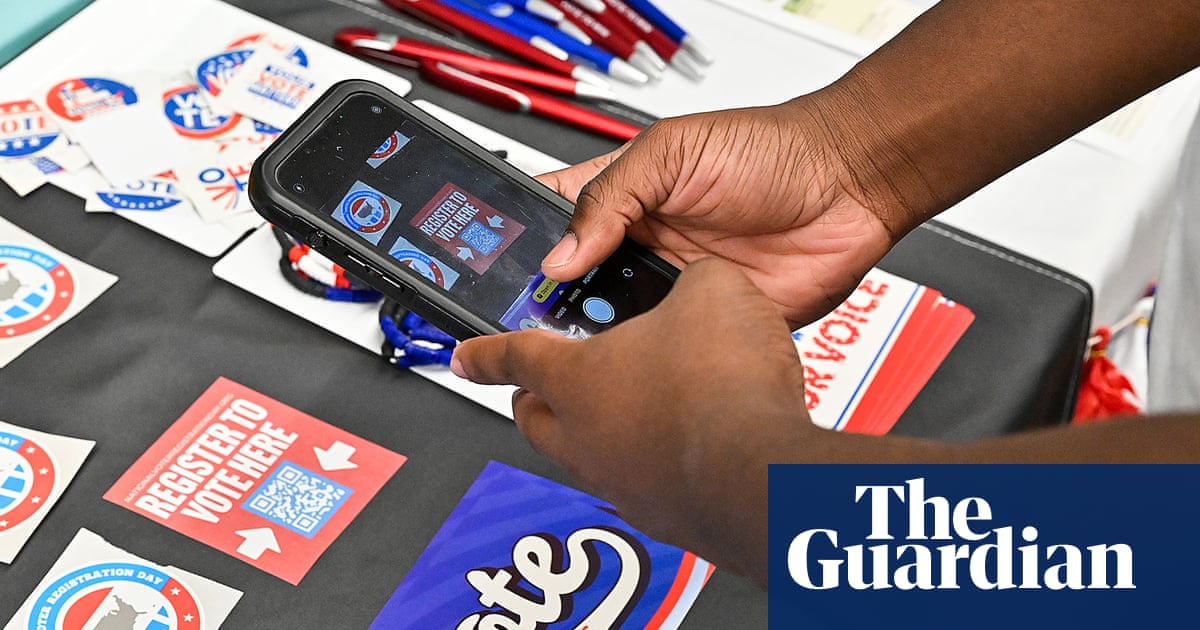Summary:
Donald Trump has signed a far-reaching executive order that promises to fundamentally disrupt American voter registration processes, introducing measures so restrictive they could in effect disenfranchise millions of citizens if enacted.
Described by Will Scharf, the White House staff secretary, on Tuesday as “the farthest reaching executive action taken” in the nation’s history, the order represents the latest in a long list of assaults against immigration, but also on current voting systems.
The sweeping order amends the federal voter registration form to require proof of citizenship in order to vote. It demands documentary proof for citizenship such as a passport to be eligible to vote in federal elections, empowers federal agencies to cut funding to states deemed non-compliant and instructs the Department of Justice to prosecute what the White House paints as “election crimes”. All the executive orders Trump has signed so far Read more
The measure also seeks to block states from accepting mail-in ballots after election day, regardless of when they are mailed in.
Many of the provisions in the order are likely to be quickly challenged and are legally suspect. The US constitution explicitly gives states and Congress the authority to set the rules for election and does not authorize the president to do so.
“The short answer is that this executive order, like all too many that we’ve seen before, is lawless and asserts all sorts of executive authority that he most assuredly does not have,” said Danielle Lang, a voting rights lawyer at the non-profit Campaign Legal Center.
Republicans have long sought to add a citizenship to the federal form and been stymied by the courts. In a 7-2 decision in 2013, for example, the US supreme court said that Arizona could not require proof of citizenship to vote in federal elections. The power to set the requirements on the federal form is left to the bipartisan Election Assistance Commission. Courts have also blocked efforts to short-circuit efforts to add the question.
The order tracks with a controversial bill in Congress Safeguard American Voter Eligibility (Save) Act, which would require Americans to prove citizenship in person – a requirement that could immediately eliminate mail-in and online voter registration already across 42 states, as well as DC and Guam.



Imo, being present in the jurisdiction, subject to the jurisdiction’s laws, and only voting once and in and one jurisdiction per election, with some form of proof of residence issued by the jurisdiction, should be all that’s required.
Step 0: Show your finger at the door to the polls.
Step 1: Bring a letter to yourself from state or town government, register to vote with your town, have a current driver’s license, or something equivalent, and receive a ballot.
Optional Step 1: Swear an affidavit before the registrat of voters that you are who you say you are and live where you say you live, no ID required; hold the ballot provisionally for a period in case someone wishes to challenge it for cause. This is currently the law in my state. If local government cannot take a citizen at their unchallenged, sworn oath, then everything falls apart.
Step 2: Vote.
Step 3: Dip your pointer finger in temporary die, also known as election ink.
Optional Steps 0-3: Preregister to vote with proof of residence only to be able to receive an official, serialized ballot mailed to your residence. Register checks serial number to make sure you don’t vote twice.
Done.
Just let people vote. Who cares about their citizenship if they reside in the jurisdiction and are subject to its laws, as long as they can’t vote twice?
I’m also in favor of lowering the voting age to sixteen. Kids can be very smart. No reason they can’t start shaping their future if they want.
Showing ID when you vote is an requirement in every European country since forever. There’s no slippery slope here. Ability to identify yourself is a pretty basic thing in a civilized country. Where I live proof of residence allows you to vote in local elections. National elections require citizenship. National ID proves you’re a citizen. It’s really simple.
And there’s the rub